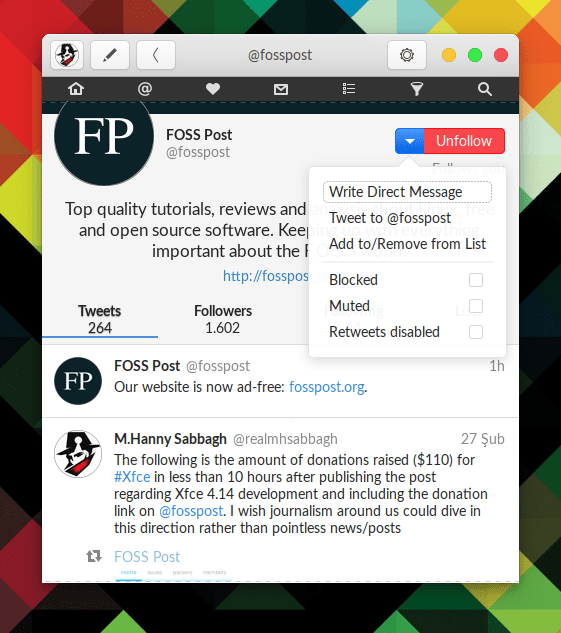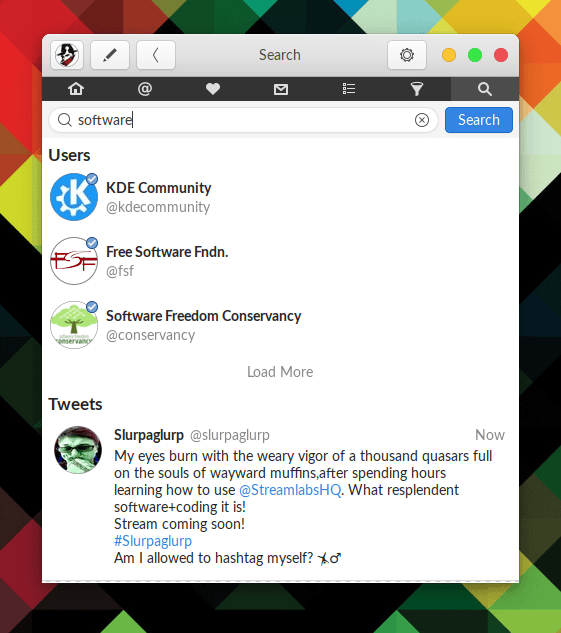Table of Contents:
Corebird
-
Creativity & Inventing
-
Fit to Purpose
-
Availability
-
Stability & Bugs
-
Continues Development
Summary
Corebird offers a beautiful native GTK+ user interface. There’s a lot of work that has been done to create those beautiful dialog interfaces. However, many design decision are just weird and some important features are missing. The application could have been a lot better if these were taking into mind.
Corebird is a native GTK+ Twitter client for Linux desktop. It is free and open source, and written mainly in C & Vala. We downloaded the latest official release and put our hands on the software. This is our experience is far.
Corebird Review: Could be Better
Corebird is available as a Flatpak package, which means that it can be installed on almost all modern Linux distributions via:
flatpak remote-add --if-not-exists flathub https://flathub.org/repo/flathub.flatpakrepo flatpak install flathub org.baedert.corebird
After installing Corebird (1.7.4) and launching the software, it will ask you for a “Twitter PIN” which is required in order to allow the app to access your account information:
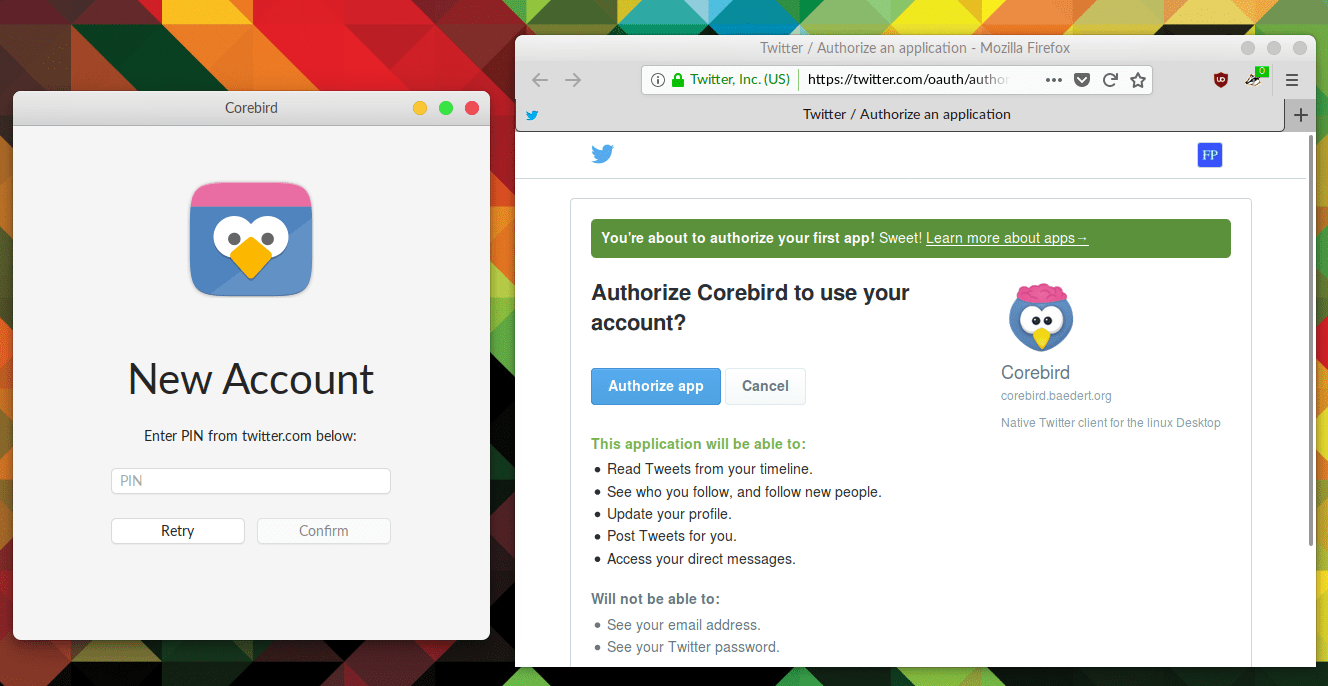
The user experience of retrieving the PIN and activating the app is good; The whole process doesn’t take more than 10 seconds. After that, you are ready to start using the program. Corebird won’t ask you again for the PIN, it will store it and use it when needed again.
Corebird’s main interface looks like the following:

The app allows you easily to view profiles, compose tweets, search for something, check your lists and all run the other main Twitter functionalities that you many need.
The compose window looks gorgeous, you can add images or emojis easily. There’s also an auto-complete feature to help you tag friends:
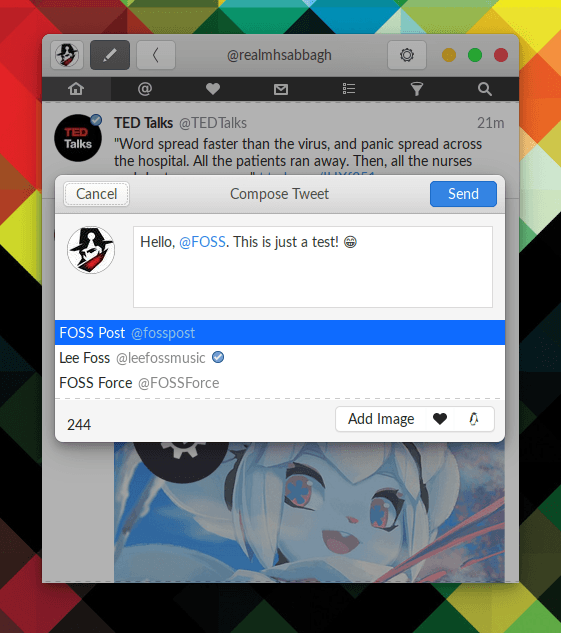
There’s a small options window for Corebird, which allows you to customize some aspects according to your needs:

Corebird does support multi-accounts usage, which is nice. The more nicer thing about it is that you can switch between your accounts instantly:
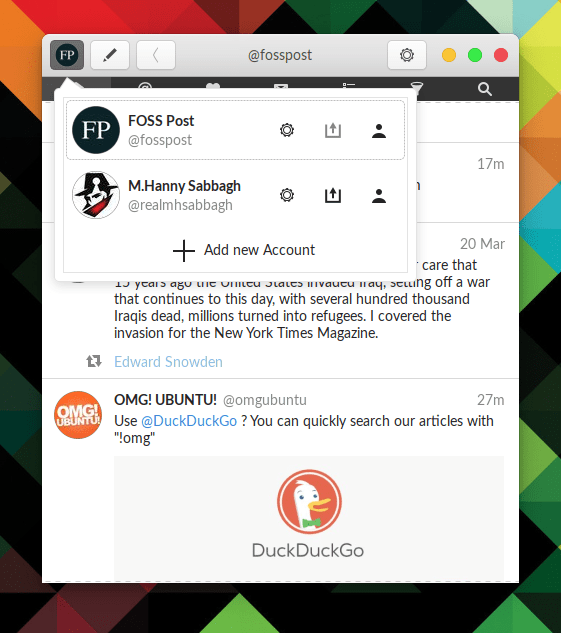
There is also a nice set of keyboard shortcuts which you can use for quicker access to functions in the apps, such as composing a new tweet:
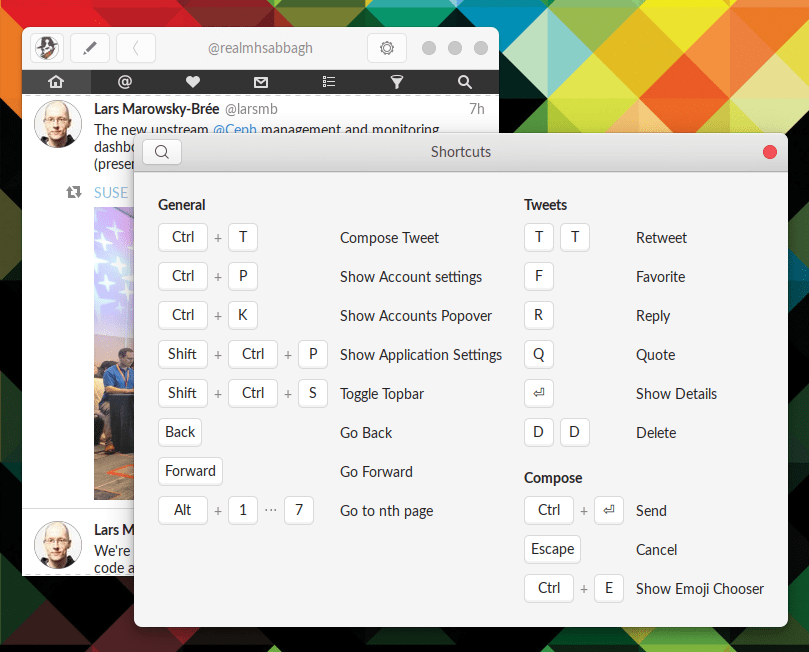
The good thing about Corebird is that it provides a native GTK+ window for almost any task you may need regarding your Twitter account. The following pictures show you some aspects of it:
However, coming to the darker side, Corebird doesn’t show you the retweet/like buttons under the tweets in the main window, which is a very essential part of a healthy user experience. Normally, it takes 1 click/hit to retweet or like a tweet, but with Corebird, you will need 2:

And as you can see, you’ll need to click the tweet in order to view the retweet/like counters. Also, the top bar is very small, and is barely clickable.
Additionally, Corebird doesn’t seem to run in the background. There’s no system tray icon for Corebird. Once the window is closed, it won’t deliver you any notifications or updates, it will close itself completely. We are not sure whether this is a bug or a non-implemented feature in the first place, but in both cases, it’s an important issue to consider.
A better user experience could be implemented by making the app sends you notifications of mentions/private messages directly when there are some (or providing an option to do so). Or providing a system tray icon which shows the number of notifications you have and offers a context menu in which many quick-access links are available (e.g compose new tweet, open profile page, exit.. etc).
Also, replies on tweets are shown at the top of the tweet, instead of the universally accepted position after the post/tweet itself, which is weird:
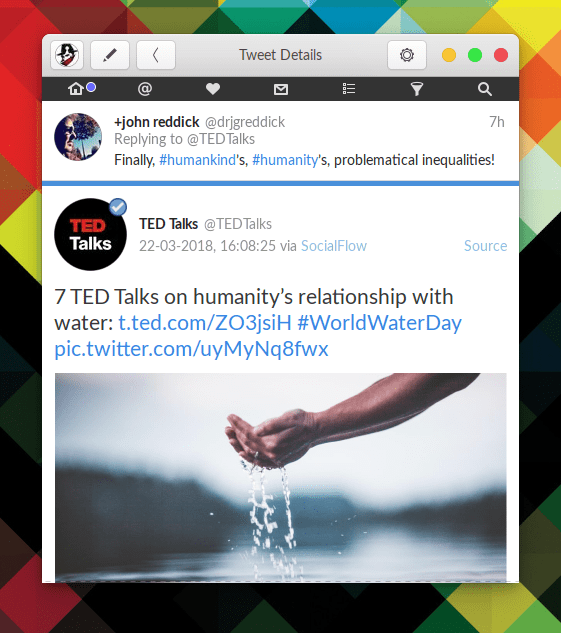
Corebird keeps showing a blue circle point near the messaging icon to indicate that there are new private messages coming for you, despite that there are none new (a bug).
Conclusion
Corebird provides a beautiful GTK+ user interface, and allows you to keep your Twitter accessible directly from your Linux desktop. However, the program lacks some of the essential features which should be in any social network client app. Some bugs can be faced when using it on daily basis.
There are some design decisions which could have made the application a lot better and more entertaining for the user. Despite that, Corebird is a nice desktop application which can be depended on to do the task.
Since developing free software is not free, you can contribute to the developer’s Patreon campaign to make the app better.
Corebird
-
Creativity & Inventing
-
Fit to Purpose
-
Availability
-
Stability & Bugs
-
Continues Development
Summary
Corebird offers a beautiful native GTK+ user interface. There’s a lot of work that has been done to create those beautiful dialog interfaces. However, many design decision are just weird and some important features are missing. The application could have been a lot better if these were taking into mind.
With a B.Sc and M.Sc in Computer Science & Engineering, Hanny brings more than a decade of experience with Linux and open-source software. He has developed Linux distributions, desktop programs, web applications and much more. All of which attracted tens of thousands of users over many years. He additionally maintains other open-source related platforms to promote it in his local communities.
Hanny is the founder of FOSS Post.


